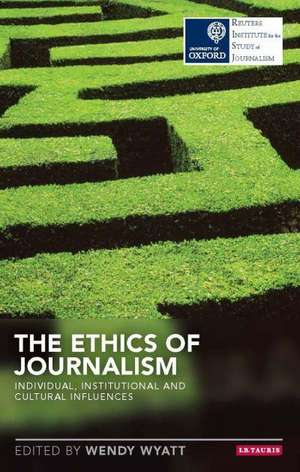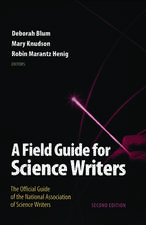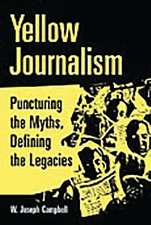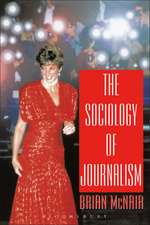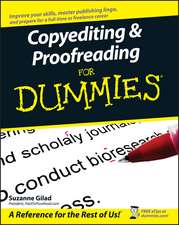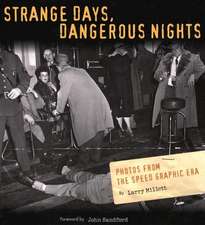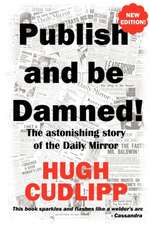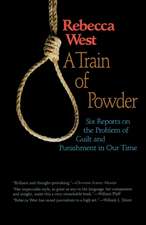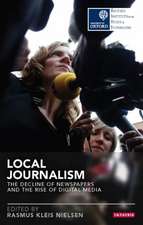The Ethics of Journalism: Individual, Institutional and Cultural Influences: Reuters Institute for the Study of Journalism
Editat de PhD Wendy N. Wyatten Limba Engleză Paperback – 5 feb 2014
Preț: 179.56 lei
Preț vechi: 220.21 lei
-18% Nou
Puncte Express: 269
Preț estimativ în valută:
34.36€ • 37.31$ • 28.86£
34.36€ • 37.31$ • 28.86£
Carte tipărită la comandă
Livrare economică 22 aprilie-06 mai
Preluare comenzi: 021 569.72.76
Specificații
ISBN-13: 9781780766744
ISBN-10: 1780766742
Pagini: 306
Dimensiuni: 138 x 216 x 25 mm
Greutate: 0.39 kg
Ediția:New.
Editura: Bloomsbury Publishing
Colecția I.B.Tauris
Seria Reuters Institute for the Study of Journalism
Locul publicării:London, United Kingdom
ISBN-10: 1780766742
Pagini: 306
Dimensiuni: 138 x 216 x 25 mm
Greutate: 0.39 kg
Ediția:New.
Editura: Bloomsbury Publishing
Colecția I.B.Tauris
Seria Reuters Institute for the Study of Journalism
Locul publicării:London, United Kingdom
Notă biografică
Wendy Wyatt is Associate Professor and Chair of the Department of Communication and Journalism at the University of St Thomas, Minnesota. Her research interests include media ethics, press criticism and media literacy. She is the author of Critical Conversations: A Theory of Press Criticism, and co-editor (with Kris Bunton) of The Ethics of Reality TV.
Cuprins
Introduction: Wendy Wyatt, University of St. ThomasPart I: Spheres of influence: fostering (or not) ethical journalism 1: The ethical newsroom: Where the individual and the collective work together Tony Harcup, University of Sheffield2: My newsroom made me do it: The impact of organisational climate on ethical decision making Lee Wilkins, University of Missouri3: How press ombudsmen help create ethical and responsible news organisations Carlos Maciá-Barber, University of Madrid4: The media and democracy: Using democratic theory in media ethics David S. Allen, University of Wisconsin-Milwaukee and Elizabeth Blanks Hindman, Washington State University5: Do professionalism and ethics reduce pressure for legal accountability? Robert Drechsel, University of Wisconsin-Madison6: The ecology of journalism ethics: Theory and Cases David Pritchard, University of Wisconsin, Milwaukee; Bastiaan Vanacker, Loyola University Chicago; Mireya Marquez, Universidad Iberoamericana and Dejan Jontes, University of LjubljanaPart II: Intersections: theory and practise 7: How do ethics and journalistic standards differ? Karen Slattery, Marquette University8: Does the language of journalism's earliest ethics codes still speak to us today? Thomas H. Bivins, University of OregonPart III: Emerging issues in a global, digital age9: Can the ethics of the 'Fourth Estate' persevere in a global age? Ejvind Hansen, Danish School of Media and Journalism10: Knowledge-cantered newswork as an ethical framework for the online era Jan Lauren Boyles, American University; Yael de Haan & Annemarie Landman, University of Applied Science Utrecht11: Ethics in the age of the solitary journalist Wendy N. Wyatt and Tom Clasen, St. Thomas UniversityBibliography, Author Biographies, Acknowledgements
